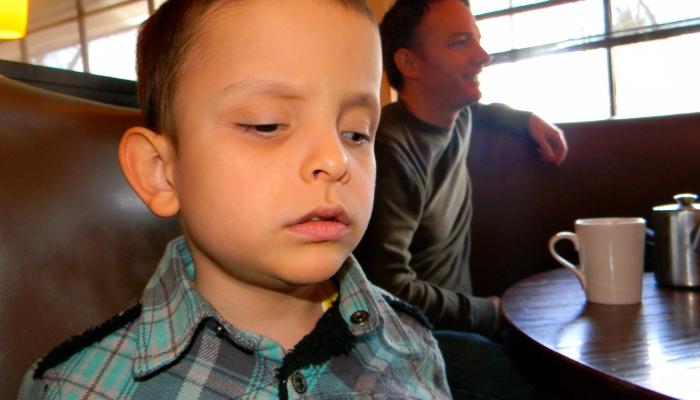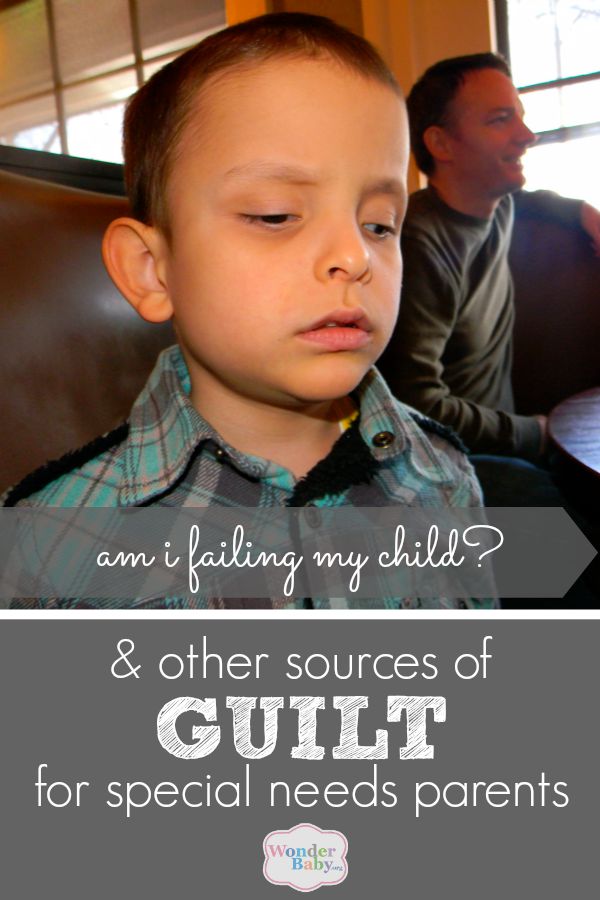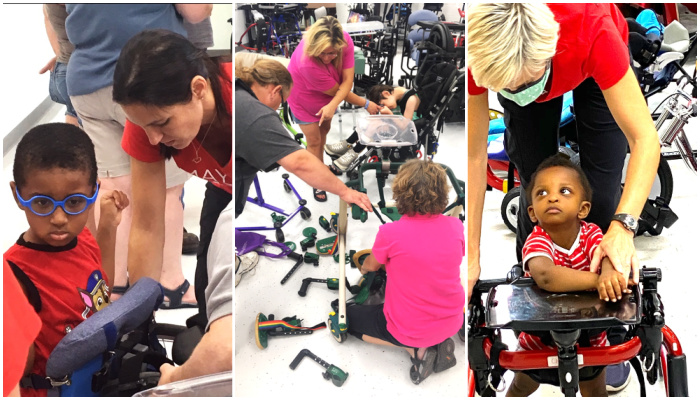Am I Failing My Child? Managing Guilt as a Special Needs Parent

I think guilt is built in to any mother’s DNA. Maybe it’s the force that keeps us moving and striving to do better for our children, no matter how tired or overworked we are.
No wait, I think that force is LOVE!
But, if we’re being honest, that love is mixed with at least a little bit of guilt, isn’t it?
For parents of special needs kids, those feelings of guilt can be multiplied by a thousand. I worry every day that I am failing my son and that feeling is magnified by the fact that he can do so little for himself. Ivan relies on me for everything… which means I can’t ever stop or take a break. And of course when I really feel like I need a break the guilt just intensifies.
Allow me this simple emotional exercise of sharing the top ten things I feel guilty about every day (and why I shouldn’t).
I feel guilty…
- That I’m not with him 24 hours a day. This is my main source of guilty feelings. Ivan needs his mom with him all the time so she can care for him and watch out for him! Who else knows him as well as I do? No one! But… he also needs to learn to rely on others for his care and it is actually good for him to be with other people. Other people can help him develop in ways I can’t and it’s healthy for kids to be apart from their mothers.
- When we don’t follow through on “homework” like signing finished when done. We have a list of things we’re supposed to work on at home and sometimes I forget to do them. The worst part is that he needs consistency to learn these skills. I can give you my excuses, but really, we should always sign finished when we are done with something. Here’s a place where I need to remember that we are all fallible and sometimes we forget, no matter what our intentions. And that is OK. Really, it is!
- When we do non-developmental or non-fun stuff (like shopping). I feel like Ivan needs to be either learning or having a super fun time ALL THE TIME. His day should be eat, have fun, eat, learn something, eat, have fun, sleep. In that order. When we run errands at the post office or grocery store I feel like I am wasting his time and not giving him the opportunities he needs to grow. I need to remember that the normal day-to-day errands are an opportunity to grow and learn. Even if he is just learning how to wait in line at the post office, that is an important life skill!
- When I make him wait. Speaking of waiting, I hate making Ivan wait. But there are so many times during the day when I have to do something (often for him) that he can’t help with, so he has to wait. And he is terrible at entertaining himself. How am I supposed to go in the kitchen and make him lunch if I can’t leave him alone for a few minutes? I do my best to talk to him while I’m in another room and I check on him often. I need to just realize that if the kid is going to eat, then he’s going to have to wait.
- When I sell his potential short. Notice how in the above point I said that Ivan has to wait when I have to do something that “he can’t help with”? Yeah, I felt guilty writing that. It makes me feel awful when I point out the things he can’t do. He has come so far and can do so much, but I often find myself focusing on all the can’t’s. I do talk a lot about the positives and I have to remember that the negatives are just a fact of life. They are there, but I shouldn’t let them define our lives.
- When I have his dad care for him. Why does this make me feel guilty? His dad is just as much responsible for him as I am, right? Ah, but I’m his mom so I feel like I should be the one doing all the kid-related activities. But that’s not true! Kids need dad time too (if they can get it) and I have to remind myself that the bond between father and son is just as important as the bond between mother and son.
- That I enjoy alone time. Sometimes (rarely) I get a moment to myself. And it’s so nice! No one is touching me or poking at me and (maybe) I have no responsibilities for the moment. I can just be alone for a little bit. It eats away at me how much I enjoy that time, but it’s healthy to rest. Even if just for a minute….
- When I don’t follow up with his school. Ivan goes to a good school so it’s easy to drop him off and walk away. They know what they are doing. Then I feel guilty for not calling or emailing or scheduling more meetings. Even the best schools need parents to follow up and keep an eye on things. So I set up observations or parent-teacher meetings just to make sure and….
- When I DO follow up with his school. I feel guilty when I think I am asking too much of his school. I trust his teachers so I should just be happy and let them be, right? Goodness, this one is a catch-22.
- When I don’t follow up with his doctors. With so many specialists involved in Ivan’s care it can be easy to let something slide, and usually the things that slide are the basics (like dentistry). What kind of mom forgets to make a dentist appointment for her kid? Well, the kind who is also making genetics, neurology, endocrinology, nephrology, gastroenterology etc etc appointments. It all gets done (and thank goodness for calendar and reminder apps!), so I should allow myself some forgiveness here.
I think guilt is a natural feeling for special needs parents to have. The trick is to identify it, figure out what it is that is making you feel guilty, then let it go. Easier said than done, I know! But it’s a constant conversation we need to have with ourselves.

Related Posts

Assistive Technology, Support
May We Help: Engineering Independence for People with Disabilities
May We Help is dedicated to designing and building custom solutions that help individuals of all ages achieve mobility, access, and independence, all at no cost.

Special Needs, Support
Five Steps to Finding Joy: Faith and the Journey of Parenting with Special Needs
Through faith special needs parents can learn to cultivate a deep, enduring state of joy.

Special Needs, Support
How Do You Keep Faith Alive When Your Child Remains Ill?
I understand the emotional toll of chronic illness, but I also believe in the power of faith and community to uplift and sustain us.